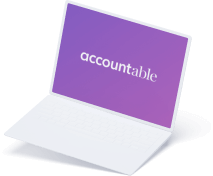
What if you make a loss in your sole proprietorship?
Read in 5 minutes
If you’ve just started as a self-employed sole trader in Belgium, it might happen that your business makes a loss in the first year. This is because even in a sole proprietorship, you have start-up costs and investments to make, and it can sometimes take a while before you start making a profit.
Nevertheless, a healthy business should at least break even over time. Otherwise, the tax authorities will start to question why you keep going despite not making money. Although making a loss isn’t necessarily a problem, it may increase the chances of a tax audit. But don’t let this cause panic – everyone can have a down year from time to time. As long as your accounts are in order and there’s a logical explanation for the situation, your loss need not have any other major consequences. This article explains how to deal with tax losses in your sole proprietorship.
- What is a tax loss?
- Do you get taxed when you make a loss as a sole trader?
- Is a tax audit more likely if you make a loss?
- What if you make a loss when you’re self-employed in a secondary occupation?
- How to declare a loss in your personal income tax return
What is a tax loss?
Profit and loss are accounting concepts. It’s therefore not enough to simply offset your income and expenses. Because in addition to the ordinary expenses your business incurs, you’ve probably also made some investments. These investments are amortised over several years, meaning that only a part of the investment appears in your accounts each year, depending on the number of amortisations.
You make a loss when you have more expenses and investments than income in a financial year. Losses can be due to various factors. For example, when your start-up costs (expensive equipment, training, etc.) are higher than your income in the first year. Or when you’ve been unable to work for a period of time (e.g. due to illness), but expenses like office rental or software subscriptions still need to be paid.
The result is a negative balance sheet and thus, a tax loss. For example, if you incurred expenses of €18,000 while ‘only’ making €16,000 in income, you have a loss of €2,000.
Do you get taxed when you make a loss as a sole trader?
No, if you don’t make a profit, you don’t pay taxes. It’s as simple as that. Well, provided your accounts are in order and there’s a logical explanation for the loss.
Many self-employed people try to limit their profits by amassing professional expenses, thereby reducing the tax burden. However, this starts to become problematic if you also deduct expenses that have little or nothing to do with your business. That Saturday night dinner with friends or your new jeans have little professional value. So be careful with claiming expenses that have no clear link to your professional activity.
💡Accountable tip: Not sure exactly which professional expenses you can deduct, and how much of them? Then take a look at our searchable database of professional expenses.
Is a tax audit more likely if you make a loss?
The tax authorities may indeed be a little quicker to visit businesses that regularly make losses. However, if everything’s in order, this need not be a problem.
It’s worth remembering that a tax audit is always possible, even without a specific reason. The tax authorities can go back up to three years in your accounts, which is a good reason to keep everything neat and tidy anyway.
As we already mentioned, it’s not unusual to make a loss in the first few years when you start a business. Between start-up expenses and a customer base that’s still small, it can be hard to break even. What’s more, even seasoned entrepreneurs can have down years from time to time, whether due to a wider economic crisis or for more personal reasons.
That said, it’s always good to understand where your losses are coming from. This is important when the tax authorities ask you questions, but also, of course, for yourself.
What if you make a loss when you’re self-employed in a secondary occupation?
When you’re self-employed in a secondary occupation, it’s also possible to make a loss on your self-employed activity. For example, as a part-time nail stylist just starting out, you could have bought €1,500 worth of equipment and only had an income of €600 from your secondary occupation. In practice, though, your main income as an employee typically absorbs the loss.
As a self-employed person in a secondary occupation, the distinction between your private assets and those of your business can be hard to ascertain. This is especially the case if you work from home, as many of your expenses are used for both your private and your self-employed activities.
Therefore, think carefully about what percentage you deduct for your mixed expenses, such as costs related to your workplace, your car, your computer and your mobile phone. In the event of a tax audit, you should be able to explain how you calculated those percentages.
How to declare a loss in your personal income tax return
You declare the income from your sole proprietorship – whether as your main or secondary occupation – through your personal income tax return, along with any other income you may have. This is also where you declare a loss. The amount should be mentioned in box VIII, code 1349 in Tax-on-web.
What happens with this loss depends on your personal situation and any other income you may have.
Situation 1: you have other sources of income
Are you self-employed in a secondary occupation or have other income besides your main self-employed occupation? If so, your loss will be ‘absorbed’ by your other income, so to speak. The tax authorities will offset your loss against your other income, which means you’ll pay less tax on the other income.
The same happens when you’re married or legally cohabiting. In this case, your taxes are calculated together with those of your partner, so the loss from your self-employment will be offset against your partner’s income. He or she will then pay less tax.
Situation 2: you’re full-time self-employed
Are you self-employed in a main occupation and your business is your only source of income? Then the loss is usually carried forward to the following year and deducted from any profit there. As a result, you’ll pay less tax the following year.
⚠️ In both situations, the loss is automatically registered by the tax authorities. But it’s best to double-check this. If it’s not done automatically, you have to declare your loss yourself in box VIII, code 1349 of your personal income tax return.
Healthy finances with Accountable
Making a loss need not be a problem in itself, especially if it’s not a regular occurrence. But making a loss, especially if it happens often, is likely to attract the attention of the tax authorities. Another reason why it’s important to only include expenses that are directly linked to your business.
Anyone who uses Accountable to keep track of their income and expenses learns a lot about the financial situation of their sole proprietorships. For example, you gain a better understanding of whether or not you have the financial scope for a certain purchase.
Accountable helps keep your business healthy in the long run. And if you make a loss, everything is perfectly documented. That way, you won’t have to worry if the tax authorities come knocking on your door. ✨
Did you find what you were looking for?
Happy to hear!
Stay in the know! Leave your email to get notified about updates and our latest tips for freelancers like you.
We’re sorry to hear that.
Can you specify why this article wasn’t helpful for you?
Thank you for your response. 💜
We value your feedback and will use it to optimise our content.










